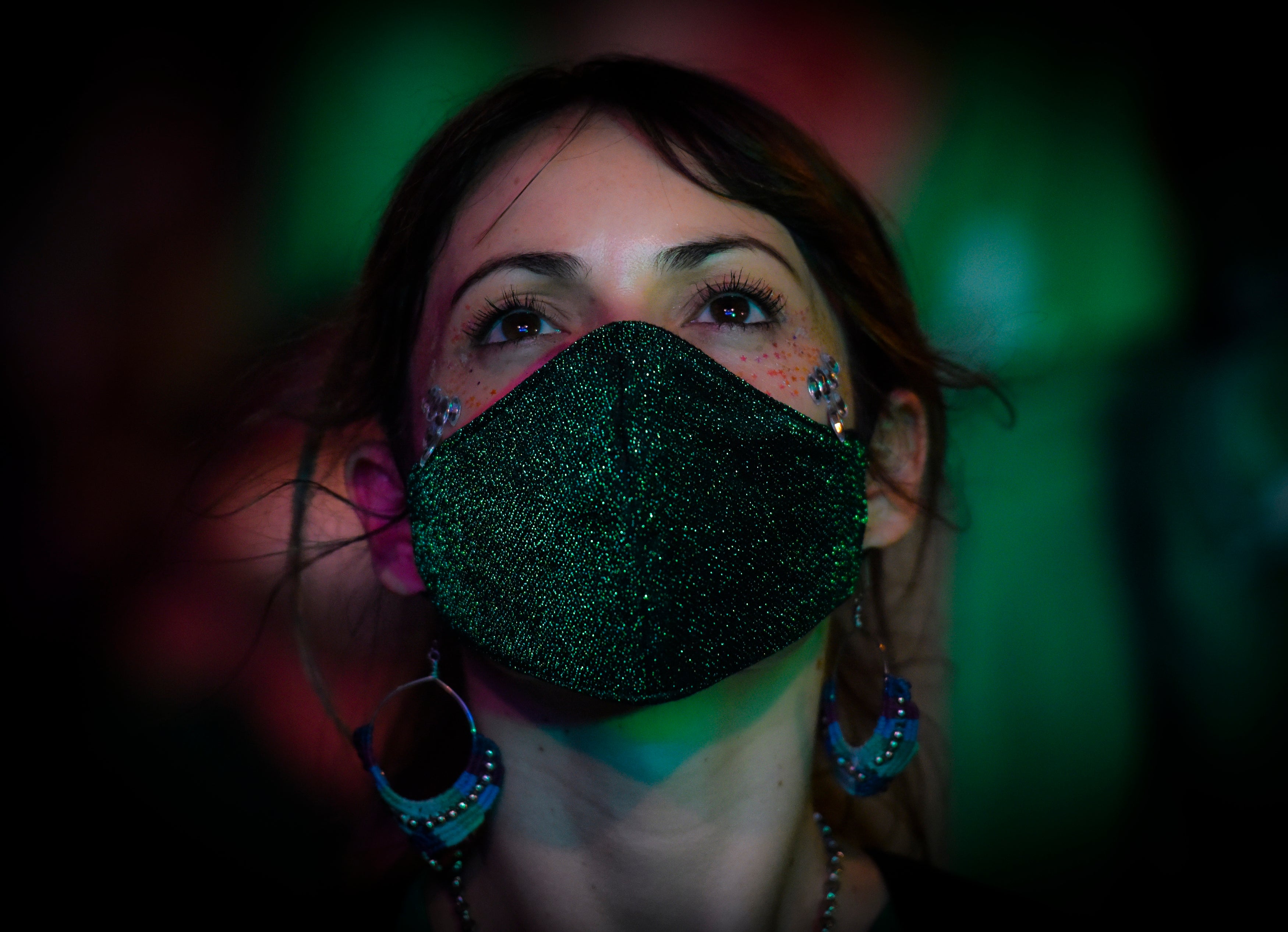How Argentina became the first major Latin American country to legalise abortion
Analysis: President Alberto Fernandez was instrumental in pushing through change in the predominantly Roman Catholic nation, explains Maya Oppenheim


Billowing green smoke filled the skyline of Argentina’s capital, Buenos Aires, when it was announced that the Latin American country had made history by legalising abortion.
Green has long been the colour of the campaign to legalise abortion in the socially conservative country, with hundreds of thousands of activists wearing green scarves and brandishing green flags in recent years.
On Wednesday morning, Argentina’s senate voted 38 to 29, with one abstention, to approve the landmark legislation after a 12-hour debate. The result represents a major victory for feminist activists who have been striving to overhaul highly restrictive abortion laws for over three decades with a slew of near misses.
Pregnancy terminations have previously only been permitted in Argentina in instances of rape or when the mother’s health or life was in danger. However, campaigners say the law was not consistently implemented, with abortions routinely unavailable even when women were legally entitled to them, and backstreet abortions being the main cause of maternal deaths.
While the latest legislation is the ninth bill in the past 15 years to address the nation’s highly restrictive abortion laws, it is markedly different in that it had the support of the president.
Alberto Fernandez, the centre-left leader of the predominantly Roman Catholic nation, pledged to make abortion legal during his first annual address to congress. Mr Fernandez, who was sworn in as president last December, said the existing law had “condemned many women, generally of limited resources, to resort to abortive practices in absolute secrecy, putting their health and sometimes their lives at risk”.
The president, who introduced the legislation that allows women to have an abortion up to the 14th week of pregnancy, added: “Abortion happens; it’s a fact. A state should protect citizens in general and women in particular. And in the 21st century, every society needs to respect the individual choice of its members to decide freely about their bodies.”
Mr Fernandez, whose attempts to legalise abortion were delayed by the Covid crisis, said the new legislation would ultimately save lives, as more than 38,000 women require hospital treatment each year because of illegal terminations, with more than 3,000 deaths since 1983.
However, his efforts to overturn Argentina’s abortion laws have not come to fruition without resistance and the Catholic church remains steadfastly opposed to the historic legislation. The church, which has great clout in the country, urged senators to vote against the bill.
A similar bill aimed at making abortion legal was rejected by a close margin by the senate in 2018 after receiving the approval of congress.
The International Women’s Health Coalition, which has backed the movement to decriminalise abortion for almost 20 years, argued it was ultimately women’s “sustained” activism that had both altered Argentine attitudes to abortion and gained the attention of countries around the world.
Shena Cavallo, a spokesperson for the coalition, said: “Today’s vote is a victory for human rights and the culmination of decades of feminist advocacy.
“Everybody has the right to safe and legal abortion, and the senate’s decision means that Argentinians can finally exercise their bodily autonomy and make decisions about their own health and lives. We celebrate today, with our partners and the people of Argentina.”
Agustina Ramon Michel, of the Centro de Estudios de Estado y Sociedad, said: “[Through] insistence, and hard and collective work, step by step, we managed to have a better law on abortion. It was many years in the making – today is a celebration. We made history.”
Fury over abortion laws raged in February last year when Argentina’s authorities refused to let an 11-year-old girl impregnated by an elderly rapist have the abortion to which she was legally entitled.
The Independent revealed full details of the horrific ordeal to which the girl, who was called “Lucia” to protect her identity, was subjected to by doctors intent on ensuring the baby survived for religious reasons, which had been disclosed by campaigners acting on her behalf.
The young girl, who had been raped by her grandmother’s 65-year-old partner, gave birth by caesarean section but her baby died in the following month.
Outrage also erupted after a young woman was imprisoned after having a miscarriage. Belen (not her real name) was reported by a hospital to the authorities and sentenced to eight years in prison for homicide after being charged with inducing an abortion.
She was released in 2017 when her conviction was overturned, having spent almost three years in jail.
Celebrating the decision to legalise abortion, Marta Alanis, founder of Catholics for Choice and a leading member of the National Campaign for the Right to Legal, Safe and Free Abortion, said: “Today’s momentous victory is for all of the women and girls who risked their lives because they could not access safe and legal medical services.
“Today is for Lucia, for Belen, and for all the other girls and women who have lost so much at the hands of an absent state.”



Join our commenting forum
Join thought-provoking conversations, follow other Independent readers and see their replies
Comments